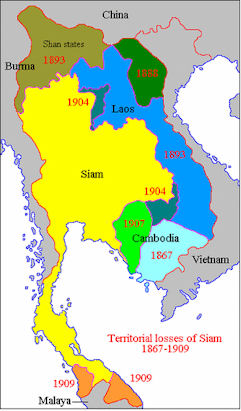

Zitierweise / cite as:
Payer, Alois <1944 - >: Chronik Thailands = กาลานุกรมสยามประเทศไทย. -- Chronik 2013 / B. E. 2556. -- Fassung vom 2017-03-22. -- URL: http://www.payer.de/thailandchronik/chronik2013c.htm
Erstmals publiziert: 2015-05-26
Überarbeitungen: 2017-03-22 [Ergänzungen] ; 2016-12-29 [Ergänzungen] ; 2016-11-30 [Ergänzungen] ; 2016-11-10 [Ergänzungen] ; 2016-01-19 [Ergänzungen] ; 2015-06-05 [Ergänzungen]
©opyright: Dieser Text steht der Allgemeinheit zur Verfügung. Eine Verwertung in Publikationen, die über übliche Zitate hinausgeht, bedarf der ausdrücklichen Genehmigung des Herausgebers.
Dieser Text ist Teil der Abteilung Thailand von Tüpfli's Global Village Library
ช้างตายทั้งตัวเอาใบบัวปิดไม่มิด
|
Gewidmet meiner lieben Frau Margarete Payer die seit unserem ersten Besuch in Thailand 1974 mit mir die Liebe zu den und die Sorge um die Bewohner Thailands teilt. |
|
Bei thailändischen Statistiken muss man mit allen Fehlerquellen rechnen, die in folgendem Werk beschrieben sind:
Die Statistikdiagramme geben also meistens eher qualitative als korrekte quantitative Beziehungen wieder.
|
2013-07-01

Susan Elizabeth Rice (1964 - ) wird Nationale Sicherheitsberaterin der USA.
Abb.: Susan Elizabeth Rice mit US-Senator John Sidney McCain III (1936 - ) und US-Präsident Barack Hussein Obama II (1961 - )
[Bildquelle: DonkeyHotey. -- http://www.flickr.com/photos/47422005@N04/8220598127. -- Zugriff am 2014-02-15. -- Creative Commons Lizenz (Namensnennung)]
2013-07-03
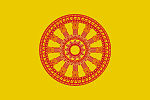
Zum Beispiel: Feier eines Luang Pu (หลวงปู่)
Video: Feier eines Luang Pu (หลวงปู่)
[Quelle der mp4-Datei: karn arroyo. -- https://www.youtube.com/watch?v=9Y7R2ZwFoiY. -- Zugriff am 2014-03-19. -- Creative Commons Lizenz (Namensnennung)]
2013-07-06
Eine Umfrage von ABAC Poll zwischen dem 1. und 5. Juli bei 2100 Personen in ganz Thailand ergibt, dass 65% der Befragten Korruption akzeptieren solange sie davon profitieren. ABAC Poll stellt die Frage nach Korruption seit November 2011. Eine positive Einstellung zur Korruption zeigen regelmäßig über 60% der Befragten.
Abb.: Mit Korruption sind einverstanden, wenn sie davon profitieren, 2013-07 (Prozent der Befragten der betreffenden Gruppe)
[Datenquelle: ABAC Poll. -- http://investvine.com/65-of-thais-are-fine-with-corruption/. -- Zugriff am 2014-02-18]
2013-07-06
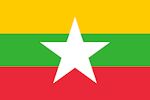
Tod des birmanischen "Opium General" Lo Hsing Han (လော်စစ်ဟန် / 羅星漢, 1935 (?) - 2013)
"Lo Hsing Han or Law Sit Han (Burmese: လော်စစ်ဟန်, IPA: [lɔ̀ sɪʔ hàɴ]; simplified Chinese: 罗星汉; traditional Chinese: 羅星漢; pinyin: Luó Xīnghàn; ca. 1930s – July 6, 2013) was a Burmese drug trafficker and became a major Burmese business tycoon, with financial ties to Singapore. He was an ethnic Kokang (果敢族 / ကိုးကန့်လူမျိုး).[6] His spouse, Zhang Xiaowen, is a Chinese citizen and native of Gengma County (耿马傣族佤族自治县) in Yunnan (云南). Rise and fall
Lo was born poor in Kokang district (ကိုးကန / 果敢).[7] Lo reportedly started his opium-trafficking career as chief of a local militia called Ka Kwe Ye (KKY)[8] set up with the encouragement of General Ne Win (1910/11 - 2002) to fight the Communists.[9] By the early 1970s he was an important figure in the Asian drug trade, particularly in the trafficking of 'China White' heroin.[3] In August 1973, he was arrested in Thailand and handed over to the Burmese government.[10] He was sentenced to death for treason on the grounds of his brief association with the insurgent Shan State Army (SSA, ရှမ်းပြည် တပ်မတော်). He was released in the 1980.He was close friends with the Myanmar military intelligence officer ,Steven Howy General Amnesty.[9]
ComebackWhen the Kokang and Wa insurgent (佤邦 / ဝပြည်နယ်) troops mutinied and toppled the Communist leadership in 1989, military intelligence chief Khin Nyunt (ခင်ညွန့်, 1939 - ) found in Lo a useful intermediary in quickly arranging cease-fire agreements and, in return, Lo was given lucrative business opportunities and unofficial permission to run drugs with impunity along with the mutineers. He wasted no time in rebuilding the drug empire he lost 15 years ago to Khun Sa (ခွန်ဆာ / 張奇夫 / จันทร์ จาง ตระกูล, 1934 - 2007), a rival KKY chief of Loi Maw. No fewer than 17 new heroin refineries were located within a year in Kokang State and adjacent areas.[9]
Leading entrepreneurIn June 1992, he founded the Asia World Company, allegedly as a front for his drug operations. His son, Steven Law (aka Tun Myint Naing / ထွန်းမြင့်နိုင် / 羅平忠, 1958/60 - ), married to Cecilia Ng of Singapore in 1996, runs the company which won many multimillion-dollar contracts in the construction and energy sectors.[9][11] In the wake of Cyclone Nargis, in February 2008, the US government included Lo, his son, and daughter-in-law, along with the 10 companies they control in Singapore, in its targeted sanctions list of the military junta's business cronies.[12]
According to a report in The Observer, he helped organize the opulent 2006 wedding of the daughter of the Burmese dictator Than Shwe (သန်းရွှေ, 1933 - ).[13]
Asia World Company is involved in a number of mega projects such as a Sino-Burma oil and gas pipeline project (中缅油气管道), a deep sea port at Kyaukpyu (ကျောက်ဖြူမြို့), the controversial Myitsone hydro-power plant (မြစ်ဆုံ တာတမံ) and the Tasang hydro-power plant (တာဆန်းဆည်). Companies of the Chinese government have investments in all of them. While Steven Law oversees the business interests in Myanmar, his other sons are based in Thailand, Singapore and Taiwan doing business. Steven Law accompanied Thein Sein (သိန်းစိန်, 1945 - ) during his first official foreign visit to China after inauguration as a civilian president.[14]
DeathLo died on 6 July 2013, in Yangon (ရန်ကုန်), Myanmar.[15] He was 80 [note 1] and is survived by his wife, four sons, four daughters and 16 grandchildren."
[Quelle: https://en.wikipedia.org/wiki/Lo_Hsing_Han. -- Zugriff am 2016-11-30]
2013-07-17

Ergebnisse einer ABAC-Umfrage bei 2100 Thais, was sie am buddhistischen Feiertag Asanha Bucha (อาสาฬหบูชา) tun wollen
Abb.: Was wollen Sie an Asanha Bucha (อาสาฬหบูชา) 2013 tun? (In Prozent der Befragten. Mehrfachnennungen)
[Datenquelle: ABAC Poll. -- http://www.chiangmaicitynews.com/news.php?id=2093. -- Zugriff am 2014-02-18]
2013-07-20

Thailands Marine bestreitet einen Bericht von Reuters, dass Marineangehörige an einem lukrativen Schmuggel-Netzwerk von birmanisch-muslimischen Rohingyas (রোহিঙ্গা) beteiligt ist, das die sNot der Flüchtlinge ausnutzt.
2013-07-21

Philippe Léopold Louis Marie / Filip Leopold Lodewijk Maria (1960 - ) wird König Belgiens. Bei der schlichten Krönungsfeier ohne internationalen Hochadel ist das thailändische Königshaus nicht vertreten.
Abb.: Philippe Léopold Louis Marie / Filip Leopold Lodewijk Maria, König Belgiens, mit Gattin Mathilde Marie Christine Ghislaine gravin d'Udekem d'Acoz (1973 - ), 2013-07-21
[Bildquelle: Holger Motzkau / Wikimedia. -- Creative Commons Lizenz (Namensnennung, share alike)]
2013-07-28
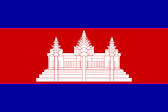
Parlamentswahlen in Kambodscha. Vermutlich herrscht schwerer Wahlbetrug.
Ergebnis:
Partei Stimmen Prozent Sitze Verlust / Gewinn an Sitzen Cambodian People's Party
គណបក្សប្រជាជនកម្ពុជា3,2 Mio. Stimmen 49% 68 -22 Cambodia National Rescue Party
គណបក្សសង្គ្រោះជាតិ2,9 Mio. Stimmen 44.% 55 +26
2013-08

Es erscheint:
Pfeffer, Karl-Heinz <1939 - >: Thailands vielfältige Landschaften : Geologie und Relief, Klima, Vegetation und Nutzung. -- Stuttgart : Borntraeger, 2013. -- 194 S. : Ill. ; 25 cm. -- (Schriftenreihe der Deutsch-Thailändischen Gesellschaft ; 27). -- ISBN 978-3-443-01077-5
Abb.: Einbandtitel
2013-08-06 - 2013-08-11
Las Vegas (USA): HHI 2013 - World Hip Hop Dance Championship
Video: HHI 2013 - World Hip Hop Dance Championship
[Quelle der mp4-Datei: danyal hip hop. -- https://www.youtube.com/watch?v=oodjmNayfjY. -- Zugriff am 2014-03-20. -- Creative Commons Lizenz (Namensnennung)]
2013-08-10 - 2013-08-18
Leichtathletik-Weltmeisterschaften (Чемпионат мира по лёгкой атлетике 2013) in Moskau (Russland). Thailand nimmt mit zwei Athleten teil, gewinnt aber keine Medaille.
Abb.: ®Logo
[Bildquelle: Wikipedia. -- Fair use]
2013-08-16
Studierende der an der Agro-industry Faculty der Kasetsart University (มหาวิทยาลัยเกษตรศาสตร์) müssen beim schriftlichen Examen Scheuklappen tragen, um nicht abschreiben zu können. Aufgrund von Protesten verspricht die Universität, die Scheuklappen in Zukunft nicht mehr zu benutzen.
Abb.: Studentin mit Scheuklappen
[Bildquelle: https://www.facebook.com/GthaiMovie?filter=3. -- Zugriff am 2013-08-16. -- Fair Use]
2013-08-21

WikiLeaks-Informant Bradley Manning (1987 - ) wird wegen militärischem Geheimnisverrats zu 35 Jahren Haft verurteilt. Wikileaks hatte auch sehr kenntnisreiche Berichte über Thailand aus der US-Botschaft in Bangkok veröffentlicht. Im gefängnis nimmt Manning den weiblichen Vornamen "Chelsea" an.
Abb.: Bradley Manning
[Bildquelle: DonkeyHotey. -- http://www.flickr.com/photos/donkeyhotey/8240508776/. -- Zugriff am 2014-02-15. -- Creative Commons Lizenz (Namensnennung)]
2013-09
Prozentuale Verbreitung sozialer Medien im Oktober 2013
Abb.: Verbreitung sozialer Netzwerke Oktober 2013 (in Prozent möglicher Nutzer)
[Datenquelle: http://www.statista.com/statistics/284483/thailand-social-network-penetration/. -- Zugriff am 2014-03-20. -- Fair use]
2013-09
Inserat einer Schönheitsklinik in Bangkok:
Abb.: "Mädchen aus dem Isan können schön sein ... lassen Sie Ihre Nase für nur 5000 Baht korrigieren"
[Fair use]
2013-09-02
Zum Beispiel: 26 der 30 Top-Charts Thailands in Pop-Musik sind von thailändischen Musikern. Darunter sind:
- Singto Numchok (สิงโต นำโชค, 1983 - )
Künstlerlink auf Spotify:
URI: spotify:artist:780z5aP7EUHfDT6Q5YERKL
URL: https://open.spotify.com/artist/780z5aP7EUHfDT6Q5YERKL- Bedroom Audio
Künstlerlink auf Spotify:
URI: spotify:artist:5NTMa7YJCseQqw70zgF7b5
URL: https://open.spotify.com/artist/5NTMa7YJCseQqw70zgF7b5- "Aof" Pongsak Rattanphong (อ๊อฟ ปองศักด์ รัตนพงษ์, 1985 - )
Künstlerlink auf Spotify:
URI: spotify:artist:3wkt8lIJGhuZ1vl47UPkjb
URL: https://open.spotify.com/artist/3wkt8lIJGhuZ1vl47UPkjbAusländer in den 30 Top-Charts sind:
- Katy Perry (1984 - )
Künstlerlink auf Spotify:
URI: spotify:artist:6jJ0s89eD6GaHleKKya26X
URL: https://open.spotify.com/artist/6jJ0s89eD6GaHleKKya26X- Lady Gaga
Künstlerlink auf Spotify:
URI: spotify:artist:1HY2Jd0NmPuamShAr6KMms
URL: https://open.spotify.com/artist/1HY2Jd0NmPuamShAr6KMms
Abb.: CD-Cover von Aof
[Bildquelle: th.Wikipedia. -- Fair use]
Abb.: Katy Perry, 2011
[Bildquelle: nikotransmission. -- http://www.flickr.com/photos/nikotransmission/5961817596. -- Zugriff am 2014-02-16. -- Creative Commons Lizenz (Namensnennung)]
Abb.: Lady Gaga, 2013
[Bildquelle: Owen Mooney. -- http://www.flickr.com/photos/105079540@N03/10215691816/. -- Zugriff am 2014-02-16. -- Creative Commons Lizenz (Namensnennung)]
2013-09-05/06
St. Petersburg (Russland): G-20 Gipfel der Regierungschefs der Gruppe der zwanzig wichtigsten Industrie- und Schwellenländer (G-20)
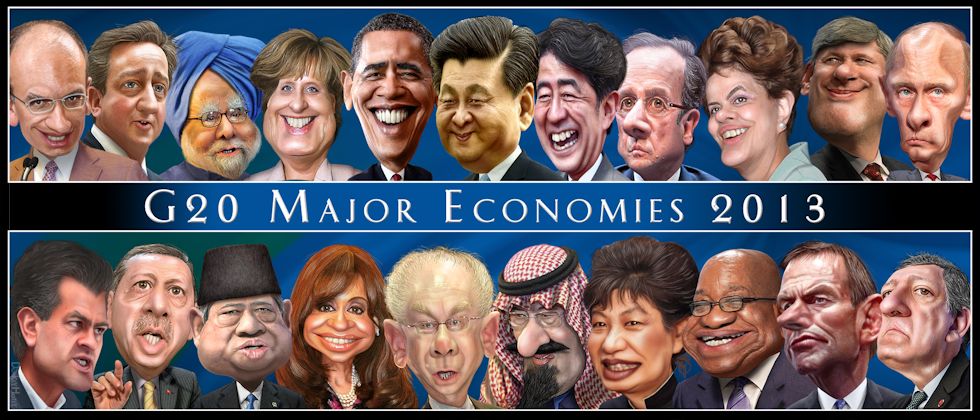
Abb.: G-20, 2013-09
[Bildquelle:
DonkeyHotey.
--
http://www.flickr.com/photos/donkeyhotey/9864187335/. -- Zugriff am
2013-10-04. --
Creative
Commons Lizenz (Namensnennung, share alike)]
2013-09-11
Tod des Luk-Thung-Sängers (ลูกทุ่ง) Sayan Sanya (สายัณห์ สัญญา, 1953 - 2013)
Künstlerlink auf Spotify:
URI: spotify:artist:1GCx5UwACFSoOeqlEsxdl9
URL: https://open.spotify.com/artist/1GCx5UwACFSoOeqlEsxdl9
Abb.: Plattenhülle
[Fair use]
2013-09-16

In einem Krankenhaus Bangkoks stirb der Kommunistenführer Malayas, Chin Peng ( 陳平), geborener Ong Boon Hua (王文華) (1924 - 2013).
Abb.: Chin Peng ( 陳平) - Staatsfeind Nr. 1
[Bildquelle: The Straits Times <Singapore>. -- 1952-05-01]
"Chin Peng (Chinese: 陳平; pinyin: Chén Píng), former OBE,[1][dubious ] (21 October 1924 – 16 September 2013[2]) born Ong Boon Hua (Chinese: 王文華; pinyin: Wáng Wénhuá) was a long-time leader of the Malayan Communist Party (MCP, 马来亚共产党 / Parti Komunis Malaya). A determined anti-colonialist, he led the party's guerrilla insurgency in the Malayan Emergency, fighting against British and Commonwealth forces in an attempt to establish an independent communist state. After the MCP's defeat and subsequent Malayan independence, Chin waged a campaign against Malaya and, after 1963, the new state of Malaysia in an attempt to replace its government with a communist one from exile, until signing a peace accord with the Malaysian government in 1989. Chin Peng died at the age of 88, in Bangkok, Thailand. Prior to his death, he was living in exile in Thailand and had not been permitted to return to Malaysia contrary to one of the conditions of the 1989 peace agreement.
BiographyEarly yearsChin Peng was born on 21 October 1924, into a middle class family who gave him the name Ong Boon Hua, in the small seaside town of Sitiawan, in Perak state (ڨيرق,), Malaya. His father had come to the town in 1920 and started a bicycle, tyre and spare motor parts business with the help of a relative from Singapore.[3] He attended a Chinese language school in Sitiawan. In 1937 he joined the Chinese Anti Enemy Backing Up Society (AEBUS), formed that year to send aid to China in response to Japan's aggression. According to Chin and Hack, he was not yet at that time a communist.[4] He was in charge of anti-Japanese activities at his school. Initially a supporter of Sun Yat-sen (孫逸仙, 1866 - 1925), by early 1939 he had embraced Communism. He planned to go to Yan'an (延安), the renowned communist base in China, but was persuaded to remain in Malaya and take on heavier responsibilities for the party there.
In late 1939, by which time Chin had completed his study up to Senior Middle One, his school announced that the Senior Middle section was to be closed due to lack of money. He chose to continue his education in the Methodist-run Anglo-Chinese Continuation School (英华学校), which operated in English, because it provided a good cover for his underground activities and because it was local so he would not have to move to Singapore for schooling. However after six months he left the school "for fear of British harassment". [5] Once out of school, he concentrated on his political activities and became, from that point on, a full-time revolutionary. In January 1940 he had been put in charge of three anti-Japanese organisations that had a scope beyond the schools; they were for students, teachers, other cultural members and shop assistants. At the end of January 1940 he was admitted to the Malayan Communist Party as a candidate member. [6]
Harassment by the authorities led him to leave his home town for Kuala Kangsar (كوالا كڠسر) in July 1940. (This may be the same movement as his leaving school, referred to above). Later he spent a month in Taiping. In September 1940 the party posted him to Ipoh (إڤوه) as Standing committee member for Perak. In December he attained full Party membership.
In early 1941 AEBUS was dissolved. Chin Peng became Ipoh District committee member of the Party. "He led student underground cells of three Chinese secondary schools and the Party's organisations of the shop assistants, domestic servants of European families, workers at brick kilns and barbers." [6] In June 1941 he became a member of the Perak State Committee.
Rise to prominenceChin Peng rose to prominence during World War II when many Chinese Malayans took to the jungle to fight a guerrilla war against the Japanese. These fighters, inspired by the example of the Communist Party of China (中国共产党), became known as the Malayan People's Anti-Japanese Army (MPAJA). Chin Peng became the liaison officer between the MPAJA and the British military in South-East Asia.
The Japanese invasion of Malaya began in December 1941. In 1942 Chin was the junior of three members of the Secretariat of the Perak State Committee: Su Yew Meng was secretary and Chang Meng Ching (hanyan pinyin: Zhang Ming Jin) was the other member. In early 1943 the two senior members were captured by the Japanese, which left Chin Peng in charge. Contact with the Party's Central Committee had been lost; he attempted to re-establish it, travelling to Kuala Lumpur (كوالا لومڤور) and meeting Chai Ker Meng. Later Lai Tek, the Party leader, sent another Central Committee member, Lee Siow Peng (Siao Ping), to replace Chin as State Secretary. However, Lee Siow Peng was captured not long after, while travelling to a meeting that was to be held in Singapore.
It was thus that the job of establishing contact with the British commando Force 136 fell to Chin Peng. The first party of that force, consisting of Capt. John Davis and five Chinese agents, had been landed in Malaya on 24 May 1943, by submarine. Chin Peng made contact with this armed group on 30 September 1943. He was active in his support for the British stay-behind troops, but had no illusions about their failure to protect Malaya against the Japanese. In the course of this activity, he came into contact with Freddie Spencer Chapman (1907 - 1971), who called him a 'true friend' in his Malayan jungle memoir, 'The Jungle Is Neutral'.
Because of his services during the war, Chin was awarded an OBE (Most Excellent Order of the British Empire ) [dubious ] (subsequently withdrawn by the British government), a mention in despatches and two campaign medals by Britain. He was elected the Secretary General of the Communist Party of Malaya after the betrayal of previous leader Lai Tek (1901 - 1947) who turned out to be an agent for both the British and the Japanese and had denounced the leadership of the Party to the Japanese secret police (Kempaitai - 憲兵隊). Chin Peng was the most senior surviving member.
The EmergencyThe Malayan colonial administration declared a state of emergency on 16 June 1948 after members of the Communist Party of Malaya killed three European plantation managers at Sungei Siput. The CPM was banned in July. Many Singaporean historians and anti-communists allege that Chin Peng ordered the killings. Chin Peng claims he had no prior knowledge. In fact, he says he was so unprepared for the start of hostilities that he barely escaped arrest, losing his passport in the process, and he lost touch with the Party for a couple of days.[7]
The resulting civil war became known as the Malayan Emergency which lasted for twelve years until 1960. Chin Peng withdrew to southern Thailand with the remnants of his forces during the latter part of the Emergency as a result of security force pressure and at the end of 1960 moved to Beijing, which became his base for many years. In 1960 he wished to give up the armed struggle, but was told by Deng Xiaoping (邓小平, 1904 - 1997) that South-East Asia was ripe for revolution. The CPM maintained a theoretical armed struggle for decades after.
The death toll climbed into the thousands. Those sympathetic to Chin Peng tend to portray the violence perpetrated by the CPM as defensive, while right-wing opponents tend to portray it as aggressive and unethical. Some have claimed the large number of civilian casualties was in contrast to the stance adopted by Mao Zedong (毛泽东, 1893 - 1976) and his policy of the Eight Points of Attention (八项注意).
In 1970 the CPM's guerrilla bases in Thailand were convulsed by the trials and executions of supposed spies. Two breakaway factions were formed which condemned the purge. Chin Peng, who was then based in China, has denied involvement and later rehabilitated his accused comrades.[8]
The CPM laid down its arms in 1989. On 2 December of that year, at the town of Had Yai (หาดใหญ่) in Southern Thailand, Chin Peng, Rashid Maidin and Abdullah CD (Cik Dat bin Anjang Abdullah, 1923 - ) met with representatives of the Malaysian and Thai governments. Separate peace agreements were signed between the MCP and both governments. One of the terms of the agreement was that MCP members of Malayan origin be allowed to return to live in Malaysia.
Application to return to Malaysia
Abb.: Lage von Had Yai (หาดใหญ่)
[Bildquelle: OpenStreetMap. -- Creative Commons Lizenz (Namensnennung, share alike)]Chin Peng lived in exile in southern Thailand and also gave lectures at the National University of Singapore. At the beginning of 2000, he applied to be permitted to enter Malaysia. This was rejected by the High Court on 25 July 2005. In June 2008, Chin Peng again lost his bid to return to Malaysia when the Court of Appeal upheld an earlier ruling that compelled him to show identification papers to prove his citizenship. Chin Peng maintained that his birth certificate was seized by the police during a raid in 1948. His counsel Raja Aziz Addruse (1936 – 2011) had submitted before the Court of Appeal that it was wrong for the Malaysian government to compel him to produce the documents, because he was entitled to enter and live in Malaysia by virtue of the agreement.
DeathChin Peng died at the age of 88 on the morning of 16 September 2013, in a hospital in Bangkok.
Media portrayalIn 2006, a documentary film about Chin Peng was made called The Last Communist (Lelaki Komunis Terakhir). It was banned by Malaysia's Home Affairs Ministry.
Chronology
Abb.: Filmplakat
[Bildquelle: Wikipedia. -- Fair use]
- 22 October 1924: Birth.
- January 1940: Accepted as probationary member of the Communist Party of Malaya (CPM); put in charge of Communist members in Sitiawan.
- 4 July 1940: Leaves home.
- December 1941: Communists' offer of help accepted; joins the fight against the Japanese.
- 10 January 1942: The first batch of the Malayan Peoples Anti-Japanese Army (MPAJA).
- 1942: Meets future wife, Khoon Wah.
- 1945: World War II ends.
- January 1946: Awarded 2 war medals; boycotts tour of British bases; forced to sign letter of apology.
- Mid-October 1946: In Penang, Yeung Kuo reveals that Lai Teck has betrayed the CPM; Lai Teck subsequently absconds with most of party's money.
- 6 March 1947: MCP Central Executive Committee meeting held to deal with Lai Teck controversy; Lai Teck fails to appear and is never seen by MCP again. Later, Chin Peng is elected secretary-general of MCP.
- 1948: Three planters killed at Sungei Siput; Emergency declared; MCP declared illegal.
- Late 1950: Briggs arrives in Malaya and implements "Brigg's plan" – resettling people into "New Villages". If the people refused to move, the British would forcibly remove them and sometimes burn down their houses. This made it difficult for the Communists to gain food supplies from the "Min Yuen", their supporters in the villages.
- 6 October 1951: Sir Henry Gurney (geb. 1898), British High Commissioner in Malaya, is assassinated on Gap road to Fraser's Hill by Siew Ma. It was a "chance" ambush by Siew Ma and his party and not a plan to assassinate Gurney.
- 7 February 1952: Sir Gerald Templer (1898 - 1979), arrives to take the place of Gurney, and implements harsh measures against the Communists.
- 28 December 1955: Baling Talks held with David Marshall and Tunku Abdul Rahman, unsuccessful because of surrender terms. After the Baling Talks, Chin Peng retires to Thailand. Ah Hai replaces him as acting Secretary-General in Malaya.
- 1960: The Emergency is officially declared at an end. However, fighting still continues. Special Malaysian government troops going by the name "Senoi Praaq" prove to be a thorn in Chin Peng's side.
- 2 December 1989: A peace treaty is signed between the communists, Thailand and Malaysia. The long, hard war the British had preferred to term an Emergency was over.
- 6–8 October 2004: Chin Peng visits Singapore for 3 days to speak at the Institute of South-east Asian Studies (ISEAS).
- 2005: Chin Peng is pending to return to Malaysia. His hearing was scheduled for 25 May 2005, and the High Court postponed it to 25 July 2005. This application was subsequently rejected.
- June 2008: Chin Peng's lost his bid to return to Malaysia when the Court of Appeal demanded he showed identification papers to prove his Malayan citizenship.
- 16 September 2013: Chin Peng died at a hospital in Bangkok. He was 90. According to the Bangkok Post, he was pronounced dead at 6.20am (GMT+8)."
[Quelle: http://en.wikipedia.org/wiki/Chin_Peng. -- Zugriff am 2014-12-31]
2013-09-23

Eldrick Tont "Tiger" Woods (1975) ist seit 1997 kumuliert 650 Wochen Weltranglistenerster im Herrengolf. Die Mutter von Tiger Woods ist dei Thailänderin Kultida Punsawad (กุลธิดา พันธ์สวัสดิ์).
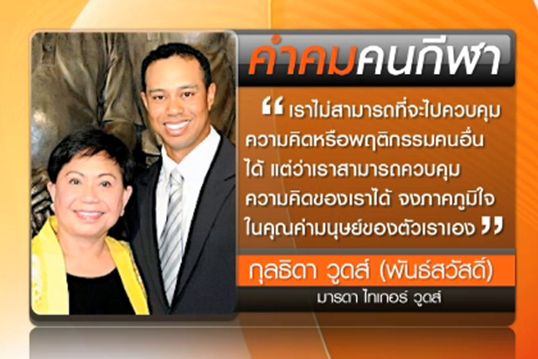
Abb.: Tiger Woods mit seiner Mutter Kultida Punsawad (กุลธิดา พันธ์สวัสดิ์)
[Bildquelle: http://news.thaipbs.or.th.
-- Zugriff am 2013-09-27. -- Fair use]
2013-10-01
Kupluthai Pungkanon: The wisdom of the dead. -- In: The Nation. -- 2013-10-01
Abb.: Funerary booklet (หนังสืออนุสรณ์งานศพ), 1963
"Funerary booklets [หนังสืออนุสรณ์งานศพ] are valuable historical sources, as well as loving mementoes of the deceased. The Thai tradition of distributing memorial booklets at funerals dates back to 1880, when King Rama V published a dharma prayer book for the cremation of Queen Sunandha Kumariratana [สุนันทากุมารีรัตน์, 1860 - 1880]. However, the cremation memorial books have never been the profitable business they are now.
The books' history was the subject of another engaging talk last week at the Princess Maha Chakri Sirindhorn Anthropology Centre, hosted in collaboration with National Library of Thailand.
Little known outside Thailand, cremation keepsake books collectively form a substantial history, covering not just the biography of the deceased - including many famous people - but also significant information about their times. Printed only for the friends and family attending the funeral, they are not available in public bookstores, and thus appeal to collectors for their academic value.
During the talk "The Charm of Cremation Memorial Book", Professor Dr Attachak Sattayanurak [อรรถจกร สตยานรกษ] of the Chiang Mai University History Department explained how the memorial books comprise an important facet to society's collective memory.
"These books were introduced at a time when most Thais were poor and poorly educated," he noted. "They're given away freely as a way of making merit, but they also have practical value.
"They're usually divided into two parts - the biography, which underlines the prestige of the deceased in the community, and general knowledge about the community and Buddhist teachings like the rules of karma. There are also usually prayers and often recipes for favourite dishes and information about the ailment from which the person died, along with advice on how to deal with it."
Historians have delineated three periods, marked by differences in content. The first, from 1917 to 1947, saw most of the content devoted to the writings of King Rama V and Princes Damrong Rajanubhab [สมเด็จพระเจ้าบรมวงศ์เธอ พระองค์เจ้าดิศวรกุมาร กรมพระยาดำรงราชานุภาพ, 1862 - 1943], Narissara Nuvadtivongs [นริศรานุวัดติวงศ์, 1863 - 1947] and Wan Waithyakon [พระเจ้าวรวงศ์เธอ พระองค์เจ้า วรรณไวทยากร กรมหมื่นนราธิปพงศ์ประพันธ์, 1891 - 1976], while books for commoners often contained stories written by the famed scholar Luang Wichitwathakan [วิจิตร วิจิตรวาทการ, 1898 - 1962].
From 1947 to 1977, as the middle class expanded, funeral booklets tended to focus on the prestige of the deceased, including their royal decorations. A mourning message became popular, along with Buddhist teachings, such as the sermons of Buddhadasa [พุทธทาสภิกขุ, 1906 - 1993], and essays about health concerns.
Since 1977, "how to" content - regarding health, cooking and the special interests of the deceased have been more common.
Rare-book collector Thongchai Likitpornsuwan is more interested in the biographical aspects of the books. "I find many of the books very impressive, especially in terms of history," he said, citing an anecdote he discovered about a palace employee becoming angry with a prince and pushing all of his toys away from the boy. "Information like this you can't find anywhere else. Information about "Phra Rachabithi 12 Duens" [พระราชพิธีสิบสองเดือน], written by King Rama V, is among the classical knowledge reprinted in the memorial books."
Thongchai and other collectors looks for such treasures the stalls specialising in antique books in the Tha Tian [ตลาดท่าเตียน], Tha Chang [ตลาดท่าช้าง], Worachak [ตลาดวรจักร] and Chatuchak markets [ตลาดจตุจักร], at book fairs and online. The price can be thousands of baht depending on the content, the book's age, condition and craftsmanship, and the fame of the deceased. The keen interest in getting copies of the funeral book of General Khattiya Sawasdipol [ขัตติยะ สวัสดิผล, 1951 - 2010] made headlines recently. Seh Daeng [เสธ แดง], as he was known, was the red-shirt leader assassinated in 2010.
Obviously there is money to be made from cremation books. Some people are paid specifically to attend funerals and get the books, and the printing shops dedicated to keepsake books are booming. They offer the next of kin a variety of templates to choose among, complete with blank pages for the personalised information about the deceased.
Associate Professor Srisak Wallipodom [ศรีศักร วัลลิโภดม], an anthropologist, said he has learned a great deal from cremation books. "The tradition became widespread as a way of giving those in attendance a souvenir that celebrated the social status of the deceased," he said. "In the past the content focused more on the history of the community, with travelogues, poems and the local traditions. Today that's all changed."
The change that Srisak doesn't appreciate is having monetary value attached to the booklets, creating a business based on profits.
It's been said that Buddhism appealed to so many people at the outset because it addresses death more frankly, and at length. The funeral books are not just a tribute to the dead and a means of making merit, but they have practical value as well - as a remarkable source of knowledge."[Quelle: Kupluthai Pungkanon: The wisdom of the dead. -- In: The Nation. -- 2013-10-01. -- Fair use]
2013-10-04

Tod des vietnamesischen Generals Võ Nguyên Giáp (geb. 1911), führender Militär im Vietnamkrieg, militärischer Führer der Việt-Minh-Truppen von Hồ Chí Minh und der Volksarmee Nordvietnams.
Abb.: Võ Nguyên Giáp, 1954
[Bildquelle: Wikimedia. -- Public domain]
2013-10-09

US-Präsident Obama nominiert Janet Louise Yellen (1946 - ) als Leiterin der US-Notenbank (Federal Reserve). Sie tritt als erste Frau 2014-02-03 dieses Amt an
Abb.: Janet Louise Yellen
[Bildquelle: DonkeyHotey. -- http://www.flickr.com/photos/47422005@N04/10547392033. -- Zugriff am 2014-02-05. -- Creative Commons Lizenz (Namensnennung)]
2013-10-14

Ein malaysisches Berufungsgericht entscheidet, dass eine christliche Zeitung als Bezeichnung für Gott nicht das Wort "Allah" benutzen darf.
"The usage of the word Allah is not an integral part of the faith in Christianity. The usage of the word will cause confusion in the community." So der vorsitzende Richter Mohamed Apandi Ali.
2013-10-23 - 2014-05-24
People's Democratic Reform Committee (PDRC) or People's Committee for Absolute Democracy with the King as Head of State (PCAD) (คณะกรรมการประชาชนเพื่อการเปลี่ยนแปลงประเทศไทยให้เป็นประชาธิปไตยที่สมบูรณ์ อันมีพระมหากษัตริย์ทรงเป็นประมุข, กปปส., literally "people's committee for changing Thailand into a complete democracy with the king as head of state")
"The People's Democratic Reform Committee (PDRC) or People's Committee for Absolute Democracy with the King as Head of State (PCAD)[7][8] (Thai: คณะกรรมการประชาชนเพื่อการเปลี่ยนแปลงประเทศไทยให้เป็นประชาธิปไตยที่สมบูรณ์ อันมีพระมหากษัตริย์ทรงเป็นประมุข, กปปส., literally "people's committee for changing Thailand into a complete democracy with the king as head of state") was an umbrella political pressure group in Thailand,[7] aimed at removing the influence of former premier Thaksin Shinawatra (ทักษิณ ชินวัตร, 1949 - ) from Thai politics and achieve political reforms by an unelected 'People's Council'.[9] The group played a leading role in the 2013–14 Thai political crisis, organising large-scale protests within Bangkok. The group was formed on 29 November 2013 by protest leader and former Democrat Party (พรรคประชาธิปัตย์) MP Suthep Thaugsuban (สุเทพ เทือกสุบรรณ, 1949 - ), who appointed himself as secretary-general.[9] The movement was supported by various organisations including the Democrat Party, the People's Alliance for Democracy (พันธมิตรประชาชนเพื่อประชาธิปไตย) (a coalition of opposition to Thaksin), student activist groups, state worker's unions and pro-military groups.[4] The PDRC's support stemmed mostly from affluent Bangkokians and Southerners.[10] Whistle-blowing was a central symbol of the protests.[11]
By accusing the government of lacking any legitimacy, Suthep Thaugsuban announced the intention of the People’s Democratic Reform Committee to take back sovereign power from the government and proceed with national reform through a non-elected royalist council, in order to "eradicate" the "Thaksin regime".[12][13] Suthep outlined plans for the council to "act as a legislative body, amend laws and regulations, as well as carry out a reform plan in the country".[14] He also explained the council would have 400 members, 300 of whom would be representatives from various professions. The remaining 100 would be selected by the PDRC from scholars and well-respected senior citizens.[15][16]
The ultimate goal of the PDRC was to have the prime minister Yingluck Shinawatra (ยิ่งลักษณ์ ชินวัตร, 1967 - ) resign as the head of the caretaker government[17] in order to allow a power vacuum[18] then invoke article 3[text 1] and article 7[text 2] of the 2007 Constitution.[19][20] This would have allowed the head of the senate to appoint a new premier. Yingluck and nine other senior ministers were removed from office by Constitutional Court on 7 May 2014. The military then seized power in a coup d'état on 22 May, a move which was applauded by many PDRC protesters.[21] The PDRC was disbanded shortly after the coup.[1]
Formation and Role in 2013-14 Political CrisisThai politics has been characterized by shows of popular force; mass yellow-shirt (เสื้อเหลือง) protests immediately preceded the 2006 coup, and a red-shirt rally that engulfed central Bangkok in 2010 was violently crushed with more than 80 civilians killed and around 2,000 injured. After three consecutive election victories for various Thaksin-backed political parties, the newly formed People's Democratic Reform Committee, a coalition of yellow-shirt groups that loathe the ruling Pheu Thai party decide to take their fight to the streets of Bangkok.[22] The object of their ire is a proposed amnesty bill aimed to reconcile differences between both groups that would have pardoned Thai politicians Abhisit Vejjajiva (อภิสิทธิ์ เวชชาชีวะ, 1964 - ), Suthep Thaugsuban over murder charges.[23] However, protesters believe that it could be a backdoor attempt to allow Thaksin Shinawatra to return home after a self-imposed exile without facing a corruption conviction.[24] After opposition from both the Democrat Party and parts of the pro-government Red Shirt movement (เสื้อแดง) the bill was rejected unanimously by the Senate of Thailand on 11 November.[25]
On 20 November the Constitutional Court ruled that a government-proposed amendment to the 2007 constitution that would have made the Senate a fully elected body was invalid.[26][27] Prime Minister Yingluck dissolved the Thai parliament following the recommencement of protests and announced a new election in accordance with the Thai constitution. The constitution states that elections must be held 45 to 60 days from the date that parliament is dissolved. The People's Democratic Reform Committee opposed the election announcement and stated that it would boycott the process.
Despite the private sector,[28] military[29] and caretaker government[30] attempt to find a solution to the crisis, The PDRC leader said he would not negotiate with the government or the military or any mediator but he would fight until the people achieve PDRC's goal to have a royally appointed people council to conduct reform before the election to eradicate the "Thaksin regime".[31][32]
Organizations aligned with the PDRCLeaders
- The Democrat Party, conservative and royalist backed by the military and most of the Bangkok-based elite with also strong support in south Thailand.[2][33][34]
- The Network of Students and People for Reform of Thailand (NSPRT), the PDRC hardline faction under the leadership of Nithithorn Lamleua and Uthai Yodmanee.[3][35]
- The People’s Alliance for Democracy or "Yellow shirt" rebranded as the "People’s Movement to Overthrow the Thaksin Regime" (Pefot).[4] The PAD consists of mainly of royalist upper and middle-class Bangkokians and Southerners, supported by some factions of the Thai Army, some leaders of Democrat Party, and members of state-enterprise labor unions.[36][37] The PAD was responsible for the seizure of Suvarnabhumi International Airport in 2008.
- The Dharma Army, led by former Palang Dharma Party (พรรคพลังธรรม) leader Major General Chamlong Srimuang (จำลอง ศรีเมือง, 1935 - ) and a key leader of the People’s Alliance for Democracy. The Dharma army is a network of foundations and associations, the most know is the Santi Asoke Buddhist sect.[5][38]
- "Rubbish Collection Organisation" founded by Rienthong Nanna (director of Mongkutwattana General Hospital) that aims at persecuting citizens who — in their view — do not respect the monarchy sufficiently.[39][40][41][42] The rhetoric of this ultra-royalist vigilante group[43] has induced fear of a potential "witch-hunt" on dissenters.[44] Their likening of opponents to "trash" has been condemned as dehumanising by Human Rights Watch and the Simon Wiesenthal Center's dean Abraham Cooper.[45]
- Suthep Thaugsuban, Secretary-general of PDRC; former Democrat Party MP from Surat Thani, former deputy prime minister (2008–2011)
- Luang Pu Buddha Issara, abbot of Wat Or Noi temple, Nakhon Pathom province[46]
- Chitpas Kridakorn née Bhirombhakdi,[47] former deputy spokeswoman of the Democrat Party, granddaughter of Chamnong Bhirombhakdi, owner of Boon Rawd Brewery (บริษัท บุญรอดบริวเวอรี่ จำกัด) (best known for its product Singha beer)
- Pipob Thongchai (พิภพ ธงไชย, 1945 - ),[48] advisor to the PDRC; education reform activist (Foundation for Children), former PAD core leader, former leader of the Campaign for Popular Democracy, co-leader of the Black May uprising 1992
- Prasong Soonsiri (ประสงค์ สุ่นศิริ, 1927 - ),[49] former chairman of the National Security Council, former minister of foreign affairs (1992–94), self-identified architect of the 2006 coup d'état
- Sathit Wongnongtoey, former Democrat Party MP for Trang, former minister to the office of the Prime Minister (2008–11)
- Seri Wongmontha[50] associate professor of communication arts at the Naresuan University Graduate School มหาวิทยาลัยนเรศวร),[51][52] playwright and actor (e.g. Saving Private Tootsie - พรางชมพู กะเทยประจัญบาน), jury president of Miss International Queen
- Somkiat Pongpaiboon (สมเกียรติ พงษ์ไพบูลย์, 1950 - ),[53] former assistant professor of education at Nakhon Ratchasima Rajabhat University, former Democrat Party MP, former Assembly of the Poor activist
- Somsak Kosaisuuk (สมศักดิ์ โกศัยสุข, 1945 - ),[54] trade union leader (State Enterprise Labour Relations Confederation), former PAD core leader, co-leader of the Black May uprising 1992
- Sonthiyarn Chuenruethai-naitham,[55] owner of T news agency; arrested on 10 February 2014
- Suthin Taratin,[56] shot and killed during a rally on 26 January 2014
- Thaworn Senniam (ถาวร เสนเนียม, 1947 - ),[56][57] former Democrat Party MP for Songkhla, former deputy interior minister
- Witthaya Kaewparadai,[58][59] former deputy chairman of the Democrat Party, former minister of public health (2008–09)
- Sakoltee Phattiyakul, former Democrat Party MP for Bangkok.[60]"
[Quelle: https://en.wikipedia.org/wiki/People%27s_Democratic_Reform_Committee. -- Zugriff am 2016-11-10]
2013-11
Reklamevideo für Düngemittel:
Video: Sexistische Reklame für Düngemittel
[Quelle der mp4-Datei: VTS / Funny, Creative and Unique. -- https://www.youtube.com/watch?v=kXSz9ZNCmOI. -- Zugriff am 2014-03-13. -- Creative Commons Lizenz (Namensnennung)]
2013-11
Reklamevideo für Autoreifen
Video: Reklame für Autoreifen
[Quelle der mp4-Datei: Bridgestone / Funnychannel. -- https://www.youtube.com/watch?v=IPofPy6pOVg. -- Zugriff am 2014-03-20. -- Creative Commons Lizenz (Namensnennung)]
2013-11-06
Demonstrationen in Bangkok gegen Amnestie-Gesetz
Video: BBC-Nachrichten über die Demonstrationen
[Quelel der mp4-Datei: BBC / BreakingWorldsNews. -- https://www.youtube.com/watch?v=1452J9d8sb0. -- Zugriff am 2014-03-13. -- Creative Commons Lizenz (Namensnennung)]
2013-11
Teile der Protestierenden werfen den Shinawatras (ชินวัตร) vor, die Monarchie abschaffen zu wollen
Video: Teile der Protestierenden werfen den Shinawatras (ชินวัตร) vor, die Monarchie abschaffen zu wollen
[Quelle der mp4-Datei: Zombiechicken.org. -- https://www.youtube.com/watch?v=ip9wHuRBy4Y. -- Zugriff am 2014-03-13. -- Creative Commons Lizenz (Namensnennung)]
2013-11-09
Bangkok Post: Ein Student der Thammasat University / Rangsit Campus (มหาวิทยาลัยธรรมศาสตร์ / ศูนย์รังสิต) protestiert mit sexuell expliziten Postern gegen den Uniform-Zwang für Studierende.
2013-11-11

Der Internationale Gerichtshof in Den Haag spricht den Tempelbezirk Prasat Preah Vihear ប្រាសាទព្រះវិហារ / ปราสาทพระวิหาร) vollständig Kambodscha zu.
Abb.: Lage von Prasat Preah Vihear (ប្រាសាទព្រះវិហារ / ปราสาทพระวิหาร)
[Bildquelle: OpenStreetMap. -- Creative Commons Lizenz (Namensnennung, share alike)]Video: Zeichentrickfilm zum Streit um Prasat Preah Vihear (ប្រាសាទព្រះវិហារ / ปราสาทพระวิหาร) / 2013-11-15
[Quelle der mp4-Datei: loymovie. -- https://www.youtube.com/watch?v=3ZQbaCSUFHo. -- Zugriff am 2014-03-19. -- Creative Commons Lizenz (Namensnennung)]
2013-11-11 - 2013-11-23
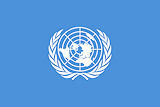
United Nations Climate Change Conference in Warschau (Polen). Das Ergebnis ist minimal.
2013-11-15

Sony bringt Play Station 4 auf den US-Markt. Andere Länder folgen bald darauf.
Abb.: Play Station 4
[Bildquelel: Wikipedia. -- Public domain]
2013-11-20
Zum Beispiel Mo Lam (
Mo Lam ( Zugriff am 2014-03-19. -- Creative Commons Lizenz (Namensnennung)]
2013-11-20
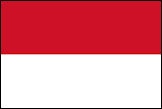

Wegen Spionage Australiens gegen seine Regierung beendet der indonesische Präsident Susilo Bambang Yudhoyono (1949 - ) die militärische und sicherheitspolitische Zusammenarbeit mit Australien.
2013-11-28
Das Parlament lehnt einen Misstrauensantrag der Opposition gegen Ministerpräsidentin Yingluck mit großer Mehrheit ab.
2013-11-30 / 2013-12
Es erscheint:
Profile of the protestors : a survey of pro and anti-government demonstrators in Bangkok on November 30, 2013. -- Bangkok : The Asia Foundation, 2013-12. -- 17 S. : Ill. -- Online: https://asiafoundation.org/resources/pdfs/FinalSurveyReportDecember20.pdf. -- Zugriff am 2016-12-29
"The original survey methodology aimed to interview 250 respondents in the two political activist groups: 250 PDRC [People’s Democratic Reform Committe - คณะกรรมการประชาชนเพื่อการเปลี่ยนแปลงประเทศไทยให้เป็นประชาธิปไตยที่สมบูรณ์ อันมีพระมหากษัตริย์ทรงเป็นประมุข, กปปส.] demonstrators in each of the five rally locations around Bangkok; and 250 red shirts [เสื้อแดง] assembled in Ratchamangkla National Stadium [สนามราชมังคลากีฬาสถาน]. Over the course of the day on November 30, as the intensity of the political gatherings increased, the security situation at the PDRC rally sites and the neighborhood surrounding Ratchamangkla Stadium deteriorated. The security situation prompted supervisors to suspend or cancel data collection in certain areas to ensure the safety of the enumerators. As a result of security concerns, enumerators were only able to complete 315 of the 500 interviews planned: 161 at Ratchamangkla Stadium and 154 at four of the five anti-government rally sites (Ratchadamnoen Road [ถนนราชดำเนิน], the Government Complex at Cheang Wattana [แจ้งวัฒนะ], the Department of Special Investigations, and the Ministry of Finance). Since the red shirt assembly filled Ratchamangkla Stadium, the size of the gathering was estimated at 60,000, corresponding to the capacity of the stadium. Available estimates for crowd size at the various PDRC rally sites on November 30 are few in number, and those that do exist vary significantly. Based on available estimates and an examination of photographic images of the rallies taken on that day, an assembly of 6,000demonstratorsin each of the four sampled PDRC sites would be a reasonable estimate. These estimates of the number of people in the respective political gatherings are adequate for sampling design purposes, since the intended sample size was small. A sample of 250 for each gathering, when randomly chosen, is effective in estimating the population parameters, since the population size is relatively large and individuals in the crowd are unknown.
The methodology applied was designed to maximize the randomness of the sample. Enumerators were instructed to plan a serpentine path through the entire physical area of the demonstrations to account for the fact that groups of protestors travelling from various locations might be concentrated in one area. To further randomize the sample and avoid selection bias, enumerators followed a skip pattern (every 20people) to select individual respondents at Ratchamangkla Stadium and in the four PDRC sites. Taking into account the final sample size achieved for the PDRC and red shirt gatherings, the margin of error for both samples is approximately 8% at a confidence level of 95%.As indicated in presentation and analysis that follows, in the case of a few questions the enumerators recorded multiple responses, which results in total percentage figures larger than 100% when all responses are tallied. In some questions, the rounding off of data to whole numbers results in a few cases in which the tallied results equal 101% rather than 100%.Methodological
Caveat: The survey sample represents the extremes of public sentiment, since the vast majority of crowds in the two different gatherings consisted of people who were sufficiently motivated to devote time and energy in support of their respective political causes. Accordingly, the findings should not be viewed as representative of the public at large. While all possible steps were taken within the parameters of available time to enhance the rigor of the survey, the sample size achieved was modest and the margin of error in any finding commensurately large. Despite these limitations, the fast estimates obtained may be considered as indicative of the true values, consistent with the aim of this rapid survey. Notwithstanding the limitations of the sample size and methodology, it is hoped that the findings of this rapid survey will contribute to an understanding of the demographics of the political activists in the respective groups and of respondent perspectives on certain issues."
[a.a.O., S. 1f. -- Faire use]
Abb.: Age of the respective respondent group (UDD = United Front for Democracy against Dictatorship - นวร่วมประชาธิปไตยต่อต้านเผด็จการแห่งชาติ ; PDRC = People’s Democratic Reform Committe - คณะกรรมการประชาชนเพื่อการเปลี่ยนแปลงประเทศไทยให้เป็นประชาธิปไตยที่สมบูรณ์ อันมีพระมหากษัตริย์ทรงเป็นประมุข, กปปส.)
[a.a.O., S. 3. -- Faire use]
Abb.: Highest education
[a.a.O., S. 3. -- Faire use]
Abb.: Geographic residence
[a.a.O., S. 5. -- Faire use]
Abb.: Geographic region (non-Bangkok residents)
[a.a.O., S. 5. -- Faire use]
Abb.: Specific occupation
[a.a.O., S. 6. -- Faire use]
Abb.: Monthly household income
[a.a.O., S. 7. -- Faire use]
Abb.: Individual or group attendance
[a.a.O., S. 8. -- Faire use]
Abb.: Mode of travel to the demonstration sites
[a.a.O., S. 9. -- Faire use]
Abb.: Sources of information on domestic political events
[a.a.O., S. 10. -- Faire use]
Abb.: Motivation in attending political rally
[a.a.O., S. 11. -- Faire use]
Abb.: Support for democracy
[a.a.O., S. 13. -- Faire use]
Abb.: Satisfaction with democracy in Thailand
[a.a.O., S. 13. -- Faire use]
Abb.: Measures to end the political tensions
[a.a.O., S. 16. -- Fire use]
2013-12

Zum Beispiel: Christliche Propaganda in muslimisch Südthailand: Das Gleichnis vom verlorenen Sohn (Lukasevangelium 15,11–32) in Südthai (ภาษาตามโพร)
Video: Das Gleichnis vom verlorenen Sohn (Lukasevangelium 15,11–32) in Südthai (ภาษาตามโพร)
"A story of a son who demands his share of his inheritance while his father is still living. His father allows him to take it, but then the son wastes it all on his own pleasures. After losing everything, and having to feed pigs for a living, he decides to return home to work for his father. The father has so much love for him, that he welcomes him back as a son, and throws a feast to celebrate his return. This is an allegory of how much Allah loves each of us."
[Quelle der mp4-Datei: IndigiTube. -- https://www.youtube.com/watch?v=JNe8XiFwQ4c. -- Zugriff am 2014-03-19. -- Creative Commons Lizenz (Namensnennung)]
2013-12
Witzmeldung von HeadmunsTV: In Thailand kommen angblich (!) Frauenunterhosen (Headmuns security pants) mit einer Penis-Atrappe auf den Markt. Sie sollen vortäuschen, dass die Person ein Mann ist und die Frau so vor sexueller Belästigung schützen.
2013-12-07

Bali (Indonesien): Die World Trade Organization (WTO) beschließt ein neues Welthandelsabkommen (Bali Package).
Abb. 1 - 3: Erwartete Wirkungen des neuen Welthandelsabkommens
[Bildquelle: Asian International Economists Network. -- http://aienetwork.org/infographic/21/whats-inside-the-bali-package. -- Zugriff am 2013-02-06. -- "Articles may be republished without alteration"]
2013-12-09
Ministerpräsidentin Yingluck beantragt beim König die Auflösung des Parlaments und Neuwahlen am 2014-02-02.
2013-12-12
Abb.: Er liebt den König, 2013-12-12
[Bildquelle: adaptorplug. -- http://www.flickr.com/photos/11401580@N03/11447257033. -- Zugriff am 2013-12-20. -- Creative Commons Lizenz (Namensnennung, keine kommerzielle Nutzung)]
2013-12-17
Miss Thailand 2013 Korat (โคราช) Camping
Video: Miss Thailand 2013 Korat (โคราช) Camping
[Quelle der mp3-Datei: Jade ThaiCatwalk. -- https://www.youtube.com/watch?v=N6GQrdF5Fk0. -- Zugriff am 2014-03-12. -- Creative Commons Lizenz (Namensnennung)]
Abb.: Lage von Korat (โคราช)
[Bildquelle: OpenStreetMap. -- Creative Commons Lizenz (Namensnennung, share alike)]
2013-12-22
Bombenanschlag auf das Oliver Hotel in Danok (ด่านนอก). Mindestens 27 Verwundete. 20 Geschäfte und 9 Autos in der Umgebung werden zerstört. Sachschaden 2 Mio. US $. Bomben im Lotus Express und einem McDonald werden rechtzeitig entdeckt. Die Attentate sollen offensichtlich den Weihnachtstourismus aus Malaysia treffen.
Abb.: Lage von Danok (ด่านนอก)
[Bildquelle: OpenStreetMap. -- Creative Commons Lizenz (Namensnennung, share alike)]
2014-02
Registrierte Nutzer der Kommunikations-App LINE (Top 10 Länder)
Abb.: Registrierte Nutzer der Kommunikations-App LINE (Top 10 Länder) (in Mio.), Februar 2014
[Datenquelle: http://www.statista.com/statistics/250927/number-of-registered-line-app-users-in-selected-countries/. -- Zugriff am 2014-03-20. -- Fair use]
ausführlich: http://www.payer.de/thailandchronik/ressourcen.htm
ENDE DER CHRONIK